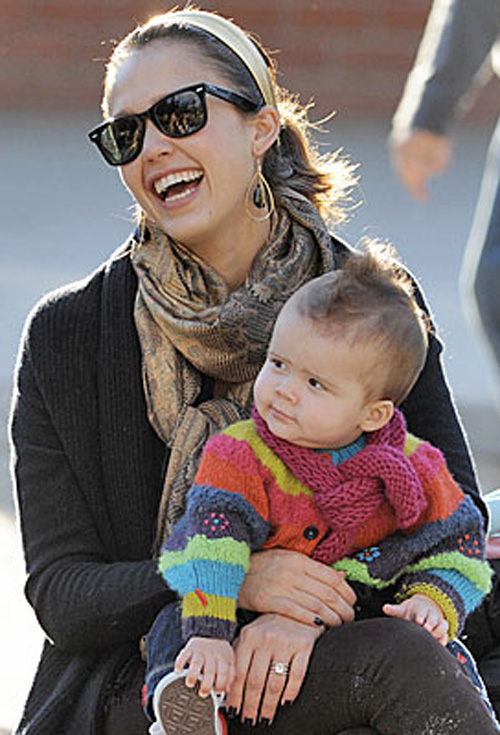Is Breastfeeding the Answer to our Literacy Problems? Probably Not.
A recently published Australian study on the impact of early breastfeeding on school test performance at age 10 captured the interest of the media, but the most important results for educators were typically not included in these reports.
Researchers found that breastfeeding for longer than six months was a significant predictor of reading, spelling and math test scores at age ten for boys, but not girls. This finding is clearly of great importance to medicine.
 Jessica Alba (above), whose portrayal of Max in "Dark Angel" inspired a generation of Substance reporters, went on to have a family, but studies have not proved that breast feeding your children increases reading scores. Inspection of their data shows, however, that other predictors were much more powerful, including family income, mother's education, and whether the mother and child read together when the child was five years old. Family income and mother's education are related to access to books in the home, school and community (Krashen, 2004).
Jessica Alba (above), whose portrayal of Max in "Dark Angel" inspired a generation of Substance reporters, went on to have a family, but studies have not proved that breast feeding your children increases reading scores. Inspection of their data shows, however, that other predictors were much more powerful, including family income, mother's education, and whether the mother and child read together when the child was five years old. Family income and mother's education are related to access to books in the home, school and community (Krashen, 2004).
These results are very important for educators. They are a strong confirmation that access to books and reading to and with children are powerful means of insuring high levels of literacy, a commonsense view that is well supported by previous research (Krashen, 2004) but nearly completely ignored by policymakers.
Of interest to educators is how much breastfeeding added to the power of income, mother's education, and reading together in predicting test scores. Unfortunately, the authors did not perform a hierarchical analysis, but looking at their results (table 4), my guess is that it did not count for much.
 Jessica Alba (above with daughter Honor) would probably do more to improve the child's reading skills by providing the child with books and other print materials and by reading to and with the child during the pre-school years. Research that claims that breast feeding babies such as Honor will raise their test scores has been challenged, and although lactation activities are still good for children a print rich environment has been found to be more likely to help the child learn early than "Baby Einstein" or a lactose rich environment without books and other reading stuff. Krashen, S. 2004. The Power of Reading. Portsmouth, NH: Heinemann Publishing Company, and Westview, CONN: Libraries Unlimited. Second Edition.
Jessica Alba (above with daughter Honor) would probably do more to improve the child's reading skills by providing the child with books and other print materials and by reading to and with the child during the pre-school years. Research that claims that breast feeding babies such as Honor will raise their test scores has been challenged, and although lactation activities are still good for children a print rich environment has been found to be more likely to help the child learn early than "Baby Einstein" or a lactose rich environment without books and other reading stuff. Krashen, S. 2004. The Power of Reading. Portsmouth, NH: Heinemann Publishing Company, and Westview, CONN: Libraries Unlimited. Second Edition.
Oddy, W., Li, J., Whitehouse, A., Zubrick, S. and Malacova, E. 2010. Breastfeeding duration and academic achievement at ten years. Pediatrics. Published online Dec 10, 2010,
http://pediatrics.aappublications.org/cgi/content/abstract/peds.2009-3489v1

